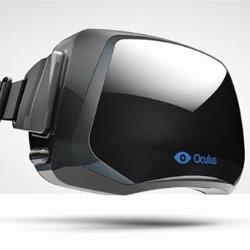Over the last few years a number of technologies have been shoved into our faces with the sole purpose of becoming the “It” technology to have. Everything from just tagging HD to the name to trying to include extra functionality to other devices all of these have been paraded in front of us. One of my favorites was hardware accelerated physics in games. Another It tech that has yet to yield true results is 4k which is still languishing with a severe lack of content.
Still most of these technologies are also lacking a broader market acceptance and standard. They tend to have multiple methods of implementation or multiple software stacks that lead to poor adoption. With in-game physics it was the need for the right hardware to run additional APIs, or you ended up with a software stack that did not really bring much to the game, but could hog system resources. Of course this is only a single example, but if you look at most of the offerings in the last 24 months you will see a similar failure.
Now, there is a new contender for the It technology; Virtual Reality. Will this tech really be the big savior of the PC market? It has some serious interest in it and projects like Google Cardboard and other inexpensive devices to enable VR on a phone are helping to push interest. Even the purchase of Oculus by Facebook is helping push VR in the right direction. When this acquisition was first announced many were more than a little confused by it. A close look saw that Facebook was looking to how many people were playing Facebook games and they want to get in on that revenue stream. We are sure that Facebook will not be limiting their VR plans to simple games and we will see some of this start to come out when the big VR launches take place around April/May.
Both Oculus and HTC will have headsets to push on the consumer while AMD, NVIDIA and Intel are working to beef up GPUs to meet the demands of VR headsets for high-resolution gaming. There are also rumors that Samsung and Apple are planning their own VR products outside of phones and tablets. These pushes are a big indicator that companies are getting behind VR as the next It tech. The next step will be the game developers starting to announce updates to game engines, core technology, and perhaps even some new items to make VR more of a reality.
The only obstacle for VR right now is; how fast can the cost to consumer scale down to be affordable? If the market is not ready to have VR affordable it will fade quickly in the same way 3D, Hardware assisted physics have. This includes the cost of the systems driving VR. The consumer market is not likely to adopt a technology that requires a $1k GPU to run. VR will not really be sustainable if there is only a fringe adoption rate. At least not on a macro scale to support companies like Samsung, Apple, Oculus, and HTC top continue to make products. 4k can continue to struggle with limited content and high prices because it will scale out as the technology matures and production costs go down.
We can only hope that the people behind the VR push are ready to answer the questions of price and application support in the next few months or we might be able to add VR to the list of also rans for the title of It tech.
Of course if the Porn industry gets into the game; all bets are off and VR is here to stay. Just sayin.




